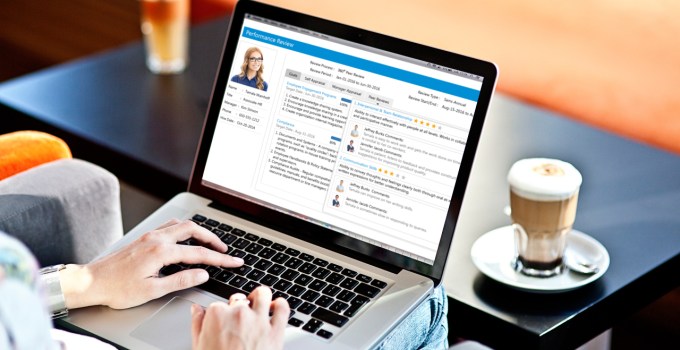For a corporation or a training organization, the LMS ( Learning Management System ) is that the ideal tool for diversifying and mixing learning methods.
Among them, 5 are particularly fashionable learners : blended learning , mobile learning, social learning, adaptive learning and high games. get up deciphers each of those educational formats for you , inseparable from a robust trend in professional training: digital learning .
What is a learning modality?
A learning method brings together the pedagogical elements (type of activities, supports, resources) chosen to impart knowledge or skills. In other words, it’s about the way during which the trainer transmits his teaching to the learners.
The context: the digital learning boom
Today, digital learning, or online training, is booming. the event of teleworking, the clearing of distances, greater mobility and therefore the growing autonomy of employees explain the explosion in e-learning training .
The learner can, wherever he’s (as long as he has access to an online connection), follow his training via a web learning platform. LMS and e-learning are therefore the right combo for workers , who learn at their own pace without having to travel.
Ever more innovative digital teaching methods
As a result, several pedagogical modalities specific to online training quickly emerged . Among them, some are already “classics” of LMS platforms, like the e-learning module and therefore the virtual classroom , which are added to face-to-face training.
In response to both new employee expectations and technological innovations, other educational formats are appearing. A Learning Management System like get up therefore offers the subsequent educational solutions:
blended learning;
mobile learning;
social learning;
adaptive learning;
gamification.
Their main asset: the commitment of the learner is actually boosted, optimizing the effectiveness of the training followed.
Blended learning: a hybrid solution
combining online and distance training
The blended learning is a component of educational formats very fashionable with students due to its flexibility and therefore the plurality of made teaching methods. This solution offers a blended learning allowing to mix the benefits of distance and face-to-face .
Organizing an individualized blended learning training course on an LMS is extremely easy. Indeed, from an equivalent interface, it’s possible at an equivalent time:
create or import all digital educational resources and make them available to the learner;
to reserve rooms for face-to-face sessions because of a synchronized calendar, but also to manage invitations and electronic registration.
Mobile learning: learn where you would like , once you want
The mobile learning allows the learner to beat the geographical barriers, time and even technology. Indeed, he can hook up with his training platform from his tablet or smartphone wherever he’s , even offline, because of a mobile application.
In addition, the LMS interface is meant to automatically suits the screen size of the terminal employed by the worker (we speak of responsive design). Thus, it’s quite possible for him to follow an e-learning module, a virtual class or to answer a quiz via his smartphone.
The Learning Management System thus adapts to the schedule and lifestyle of every employee during training.
Social learning, where community learning
At the guts of current educational innovations: the social learning or social learning. More and more LMS are now giving pride of place to the present sort of educational format. what’s it exactly?
The philosophy is to maneuver from “solo” learning to community learning. The administrator of an LMS can for instance integrate an employee into one or more groups of learners sharing an equivalent objectives as him.
Thanks to the tools available on the platform (forums, chats, features for sharing documents and comments, as on social networks), they convey and work together.
The interest is real: exchanges between colleagues are strengthened, creating links and emulation between learners . Social learning maintains the motivation of employees and encourages them to be more active in their learning.
Adaptive learning: an
evolutionary training consistent with the preferences of the learner
Powered by AI technologies, adaptive learning is characterized by the personalization of the training experience . The training offer evolves consistent with the behavior of the learner on the LMS platform.
Depending especially on their profile and their learning history, the e-learning platform will make personalized content suggestions. Result: the worker automatically accesses resources and academic activities relevant to their expectations, which can maximize their chances of success.
The Learning Management System, because of all the info it collects when an employee logs on, is thus ready to analyze the unique needs of every user. during this sense, the LMS is getting closer and closer to the LXP (Learning Experience Platform) .

this is often for instance the case with the increase Up solution, which offers each learner a customized and intuitive dashboard.
The serious game, or pedagogy through play
The “serious game” is more and more often integrated within the pedagogical modalities within the framework of professional training. Here, the playful is put at the service of a concrete learning : the collaborator immerses himself during a situation taken from reality .
For example, he’s confronted with a customer who involves make a complaint, he has got to manage the stocks of a store, he receives a candidate for an interview, etc. The scenario deployed makes it possible to organize the worker to act in work contexts that he will experience once the training is completed.
Coming from the planet of computers and video games, the intense game can easily be applied to face-to-face training sessions. The strengths of this format are to capture the learner’s attention, mobilize their resources and stimulate them. additionally , gamification are often taken further with the organization of team challenges and therefore the introduction of a leaderboard.
Incorporating a healthy competition between learners is additionally quite possible directly on an LMS. The e-learning platform can indeed integrate challenges and rewards throughout the learner’s journey.

